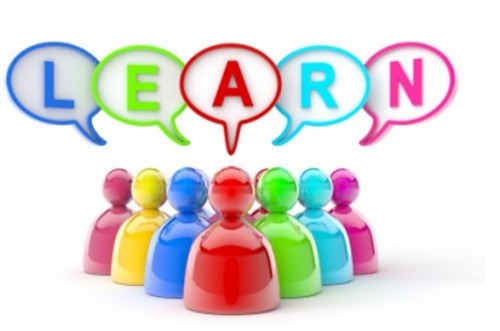
Learning theories are conceptual frameworks describing how information is absorbed, processed, and retained during learning. Cognitive, emotional, and environmental influences, as well as prior experience, all play a part in how understanding, or a world view, is acquired or changed and knowledge and skills retained.
Behaviorists look at learning as an aspect of conditioning and will advocate a system of rewards and targets in education. Educators who embrace cognitive theory believe that the definition of learning as a change in behavior is too narrow and prefer to study the learner rather than their environment and in particular the complexities of human memory. Those who advocate constructivism believe that a learner’s ability to learn relies to a large extent on what he already knows and understands, and the acquisition of knowledge should be an individually tailored process of construction. Transformative learning theory focuses upon the often-necessary change that is required in a learner’s preconceptions and world view.
Outside the realm of educational psychology, techniques to directly observe the functioning of the brain during the learning process, such as event-related potential and functional magnetic resonance imaging, are used in educational neuroscience. As of 2012, such studies are beginning to support a theory of multiple intelligences, where learning is seen as the interaction between dozens of different functional areas in the brain each with their own individual strengths and weaknesses in any particular human learner.
Learning and conditioning
There are three types of conditioning and learning:
Classical conditioning, where the behavior becomes a reflex response to an antecedent stimulus.
Operant conditioning, where an antecedent stimuli is followed by a consequence of the behavior through a reward (reinforcement) or a punishment.
Social learning theory, where an observation of behavior is followed by modeling.
Classical conditioning was discovered by Ivan Pavlov. He observed that if dogs come to associate the delivery of food with a white lab coat or with the ringing of a bell, they will produce saliva, even when there is no sight or smell of food. Classical conditioning regards this form of learning to be the same whether in dogs or in humans.Operant conditioning reinforces this behavior with a reward or a punishment. A reward increases the likelihood of the behavior recurring, a punishment decreases its likelihood.Social learning theory observes behavior and is followed with modeling.
These three learning theories form the basis of applied behavior analysis, the application of behavior analysis, which uses analyzed antecedents, functional analysis, replacement behavior strategies, and often data collection and reinforcement to change behavior. The old practice was called behavior modification, which only used assumed antecedents and consequences to change behavior without acknowledging the conceptual analysis; analyzing the function of behavior and teaching new behaviors that would serve the same function was never relevant in behavior modification.
Behaviorists view the learning process as a change in behavior, and will arrange the environment to elicit desired responses through such devices as behavioral objectives, Competency-based learning, and skill development and training.Educational approaches such as Early Intensive Behavioral Intervention, curriculum-based measurement, and direct instruction have emerged from this model.












